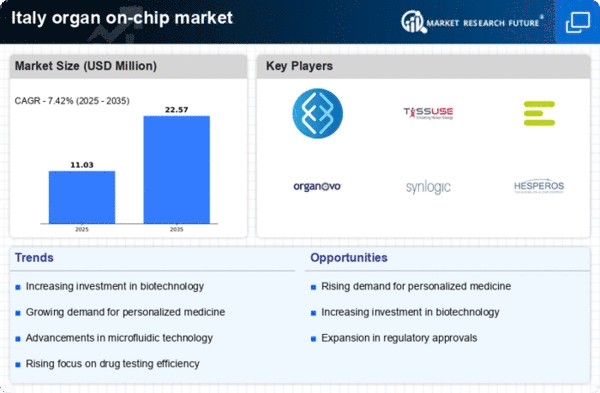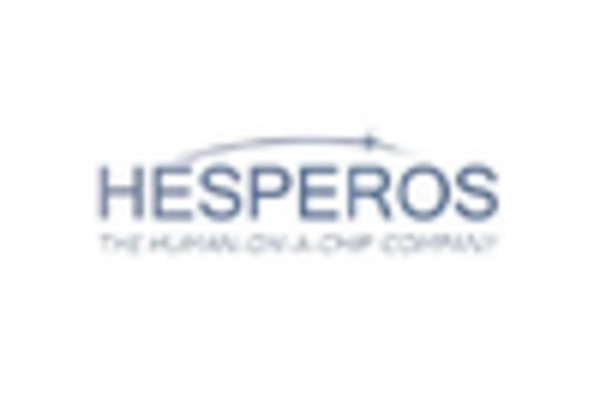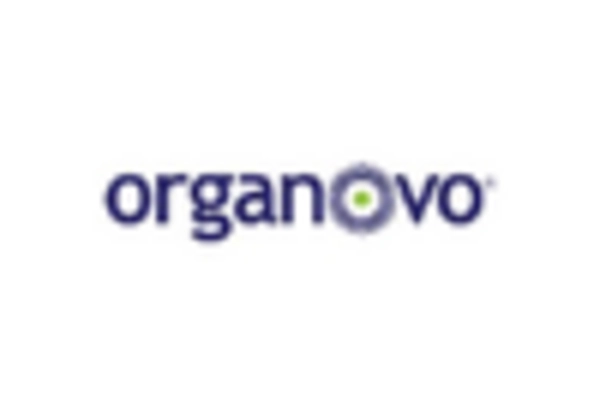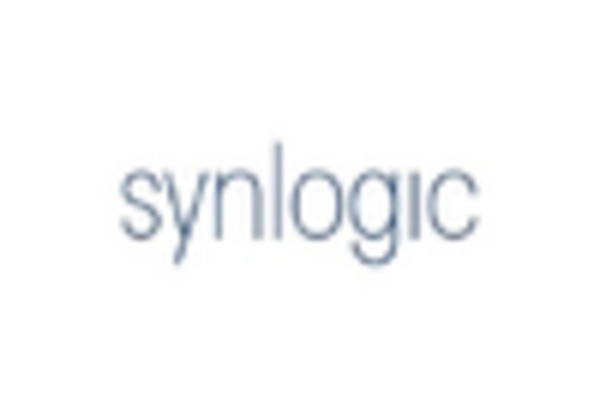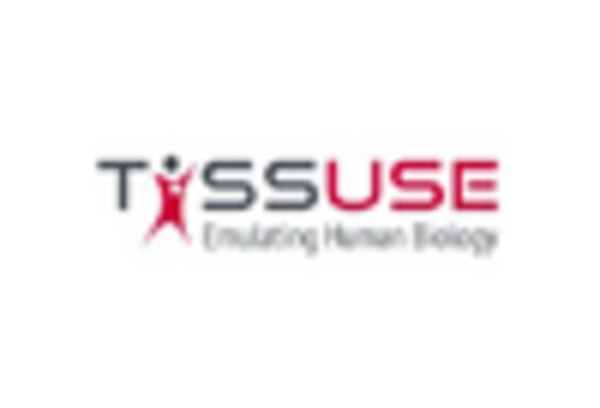Rising Awareness of Animal Welfare
The organ on-chip market in Italy is also influenced by the rising awareness of animal welfare in research practices. As ethical considerations gain prominence, researchers and companies are increasingly seeking alternatives to animal testing. Organ-on-chip technologies present a viable solution, offering a human-relevant platform for drug testing and disease modeling. This shift is supported by regulatory bodies advocating for the reduction of animal use in research. In Italy, public sentiment is increasingly favoring humane research practices, which could lead to a substantial increase in the adoption of organ-on-chip technologies. This growing awareness is likely to drive market expansion, aligning with ethical research practices.
Growing Investment in Biotech Startups
Italy's organ on-chip market is benefiting from a growing influx of investment in biotechnology startups. The Italian government, alongside private investors, is increasingly funding innovative research initiatives that leverage organ-on-chip technologies. In 2025, investments in biotech startups are projected to reach €1 billion, reflecting a robust interest in developing advanced medical solutions. This financial backing is crucial for fostering innovation and accelerating the commercialization of organ-on-chip products. As these startups emerge, they are likely to contribute significantly to the organ on-chip market, enhancing Italy's position as a hub for biotechnological advancements.
Rising Demand for Personalized Medicine
The organ on-chip market in Italy is experiencing a notable surge in demand for personalized medicine. This trend is driven by the increasing recognition of the need for tailored therapeutic approaches that cater to individual patient profiles. As healthcare providers and researchers seek to enhance treatment efficacy, organ-on-chip technologies offer a promising solution by enabling the simulation of human organ responses to various drugs. The Italian pharmaceutical sector, valued at approximately €30 billion, is increasingly investing in these technologies to streamline drug development processes. This shift towards personalized medicine is likely to propel the organ on-chip market forward, as it aligns with the broader healthcare trend of individualized patient care.
Advancements in Microfabrication Techniques
Recent advancements in microfabrication techniques are significantly impacting the organ on-chip market in Italy. These innovations enable the creation of more complex and functional organ models, which are essential for accurate biological simulations. As Italian researchers and companies adopt cutting-edge microfabrication technologies, the quality and reliability of organ-on-chip systems are expected to improve. This progress not only enhances the appeal of these systems for drug testing but also attracts investment from various sectors, including pharmaceuticals and academia. The ongoing development in microfabrication is likely to bolster the organ on-chip market, making it a vital component of Italy's biomedical landscape.
Increased Focus on Drug Development Efficiency
The organ on-chip market in Italy is poised for growth due to an increased focus on enhancing drug development efficiency. Traditional drug testing methods are often time-consuming and costly, leading to a demand for more efficient alternatives. Organ-on-chip technologies provide a platform for high-throughput screening, allowing researchers to evaluate drug efficacy and toxicity in a more streamlined manner. This shift is particularly relevant in Italy, where the pharmaceutical industry is under pressure to reduce time-to-market for new drugs. By adopting organ-on-chip solutions, companies can potentially decrease development timelines by up to 30%, thereby driving market growth.


